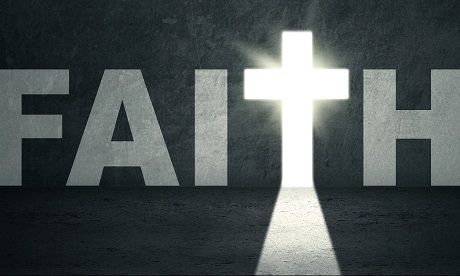I’ve seen this observation attributed to theologian Paul Tillich and to popular Christian writer Anne Lamott, but it’s been expressed in one way or another by mystics and preachers across the centuries.
It says that the opposite of faith isn’t doubt.
Tillich, I believe, said doubt is a necessary part of faith. Lamott has said that the opposite of faith is certainty.
This idea didn’t originate with either of them. It’s very old.
For instance, “The Cloud of Unknowing,” a spiritual work of the 1300s by an anonymous mystic, argues something similar — that our spiritual lives remain shrouded in a sort of opaque mist within which God hides, and we can never figure out who God is or what God’s up to. Faith, and life, normally include this frustrating unknowing.
Faith, then, isn’t necessarily easy. It’s work. If it does come easily, it’s possibly not real faith but only self-delusion or vapidity masquerading as faith.
I’ve been considering this again in light of developments in my family and my personal journey.
In the past few weeks, my beautiful daughter-in-law, Cassie, the mother of my five beloved grandkids, has been diagnosed with breast cancer. She’s 41.
We’re presently in the hurry-up-and-wait cycle. One biopsy gets complicated by a second. Possible treatment plans are altered. As the diagnosis develops, one doctor and hospital is supplanted by another.
It’s hard to know what’s really happening. Facts change daily. (Still, the prognosis looks very encouraging. Hallelujah.)
But we have a small family, and within our little group my mother had breast cancer, my first wife had breast cancer and my sister had breast cancer.
Now Cassie has that battle to fight. Four women, all greatly loved, none biologically related (my sister is adopted), and yet they’ve each, in turn, developed the same disease.
What are the odds? Why does this keep happening? What exactly lies ahead?
I don’t know, I don’t know and I don’t know. If God does know, he’s not telling.
I face other unanswerable questions. At 67, I’m well into what could be retirement age. Many of my acquaintances are retired. My wife, only 56, is retired.
When considering my own retirement, I’m concerned about what’s best for my congregation. I don’t want to stay beyond my sell-by date, as I’ve seen too many ministers do, but I also don’t want to leave if the church still needs me.
Given that I’m the pastor of a small, independent church, I don’t have a denominational retirement plan to fall back on.
I’ve lived frugally and saved diligently, and I’m not poor, but I don’t have the kind of money that will last forever. I have no idea how long I’ll live.
Here again, I’m in the dark. It’s impossible to say what’s best. And again, even if God knows the answer, the heavens are silent.
That leads us, as all big questions eventually do, back to God himself.
I’ve been preaching about the Lord for over 40 years. I’ve built my life and career on the belief that God exists, loves us all unconditionally and wants the best for us.
What if I’m wrong? I think about that, especially when bad things happen.
What if there isn’t any God? What if the whole idea is just a big pitiable exercise in wishful thinking? If God is there, why doesn’t he do the common-sensical thing and reveal himself?
I realise these may seem like odd questions for a pastor to ask. But the good news is, such questions don’t constitute a failure of faith. If you’re asking the same questions, you’re not an infidel.
Questioning, doubt and bewilderment are norms of faith, not indications that you lack it. Ideally, they’re the prods that keep us searching, reading, praying — and eventually lead us into a deeper, more seasoned relationship with the Almighty, others and ourselves.
If we think we’ve already got all the answers, there’s no reason to keep seeking. When we have no answers, there’s nothing to do but keep pressing on.
One of my favorite contemporary Christian writers, Richard Rohr, whom I cite a lot, has written, “Most days, I’ve had to simply choose to believe, to love, and to trust.”
Amen. That’s what we all do at least part of the time. Real faith, the mature kind, is a choice we make — and keep making. It’s not a feeling we have.
We choose to believe in the same way we choose to love the difficult, give shelter to the homeless or tutor the illiterate.
We don’t do those things due to crystalline logic or unassailable proof or a gooey heart but because we’ve committed to a God and a worldview that require such responses. Some days we want to help, and some days we don’t.
Regardless, we help.
Similarly, we swore allegiance to the Lord long ago, and so we daily repledge that faith. Sometimes we don’t see any evidence. Sometimes we don’t buy one word of the creeds and Scriptures. Sometimes we’re confused, tiny and scared.
But we keep walking forward, through the mist, trusting there’s an invisible hand reaching toward us in that cloud of unknowing, and it’s guiding us home.
- Paul Prather has been a rural Pentecostal pastor in Kentucky for more than 40 years. Also a journalist, he was The Lexington Herald-Leader’s staff religion writer in the 1990s, before leaving to devote his full time to the ministry.
- First published in Religion Unplugged. Republished with permission.
